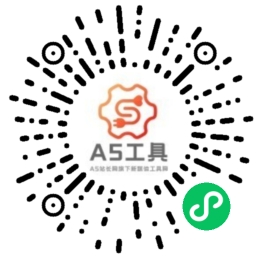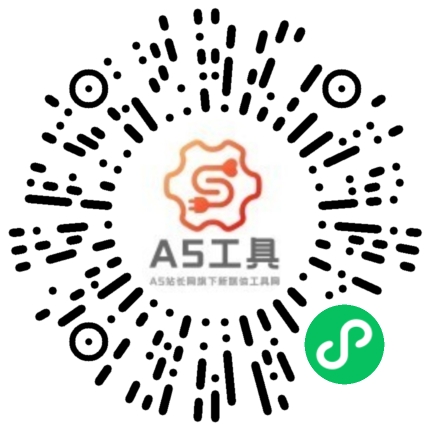AI新纪元:人类进化的机遇还是挑战?未来由你我共塑!
2024-12-17 15:42
**The Dawn of AI: A New Era in Human Evolution?**
In the tapestry of technological advancements, few innovations have captivated the human imagination quite like Artificial Intelligence (AI). Have we, as a species, embarked on a journey towards an uncertain utopia, or are we teetering on the edge of a dystopian abyss? The question lingers, inviting each of us to ponder our relationship with this burgeoning field.
Imagine a world where your morning coffee is brewed to perfection by a machine that learns your preferences over time, where health diagnostics are conducted with unparalleled accuracy by AI algorithms, and where autonomous vehicles navigate our streets, reducing accidents and traffic congestion. These are not distant dreams but tangible realities, brought to life by the relentless march of AI. According to a report by Statista, the global AI market is projected to surpass $300 billion by 2025, reflecting a compound annual growth rate of nearly 40%. Such staggering figures hint at a transformative shift that's already underway.
Yet, amidst this optimism, whispers of caution resonate. Are we prepared for the ethical implications of AI's decision-making processes? Consider the case of hiring algorithms accused of bias against women and minorities, highlighting the need for rigorous oversight and diversity in AI development teams. As Oxford's Future of Humanity Institute warns, up to 47% of U.S. jobs are at risk of being automated within the next two decades. This statistic isn't merely a number; it's a call to action, urging us to reimagine education and the workforce for a future where human ingenuity and AI collaborate, rather than compete.
Moreover, the debate around AI's potential for autonomous weapons, or "killer robots," escalates ethical concerns to a new high. The Campaign to Stop Killer Robots, supported by over 50 countries, advocates for a preemptive ban, fearing that once deployed, such technologies could lead to uncontrollable escalation in conflicts.
Amidst these debates, one cannot overlook the incredible strides AI has made in healthcare. From early disease detection through machine learning to personalized treatment plans crafted by AI-driven systems, the medical landscape is being revolutionized. A study in Nature Medicine revealed that AI algorithms could predict patient outcomes in intensive care units with remarkable accuracy, paving the way for more effective resource allocation and potentially saving countless lives.
As we stand at this precipice, the narrative of AI's future is being written by each of us—through our choices, our policies, and our collective vision. Should we view AI as a mere tool, to be wielded for our benefit without question? Or, must we embrace it as a partner, guiding its development with ethical frameworks that ensure it serves humanity's best interests?
The dawn of AI heralds a new era in human evolution, one where our potential is amplified but so too are our responsibilities. The question now is: Will we rise to meet this challenge, shaping AI into a force for good, or will we be swept away by the tide of technological progress, losing sight of what truly matters? The answer lies in our hands, and the world eagerly awaits our decision.
In the tapestry of technological advancements, few innovations have captivated the human imagination quite like Artificial Intelligence (AI). Have we, as a species, embarked on a journey towards an uncertain utopia, or are we teetering on the edge of a dystopian abyss? The question lingers, inviting each of us to ponder our relationship with this burgeoning field.
Imagine a world where your morning coffee is brewed to perfection by a machine that learns your preferences over time, where health diagnostics are conducted with unparalleled accuracy by AI algorithms, and where autonomous vehicles navigate our streets, reducing accidents and traffic congestion. These are not distant dreams but tangible realities, brought to life by the relentless march of AI. According to a report by Statista, the global AI market is projected to surpass $300 billion by 2025, reflecting a compound annual growth rate of nearly 40%. Such staggering figures hint at a transformative shift that's already underway.
Yet, amidst this optimism, whispers of caution resonate. Are we prepared for the ethical implications of AI's decision-making processes? Consider the case of hiring algorithms accused of bias against women and minorities, highlighting the need for rigorous oversight and diversity in AI development teams. As Oxford's Future of Humanity Institute warns, up to 47% of U.S. jobs are at risk of being automated within the next two decades. This statistic isn't merely a number; it's a call to action, urging us to reimagine education and the workforce for a future where human ingenuity and AI collaborate, rather than compete.
Moreover, the debate around AI's potential for autonomous weapons, or "killer robots," escalates ethical concerns to a new high. The Campaign to Stop Killer Robots, supported by over 50 countries, advocates for a preemptive ban, fearing that once deployed, such technologies could lead to uncontrollable escalation in conflicts.
Amidst these debates, one cannot overlook the incredible strides AI has made in healthcare. From early disease detection through machine learning to personalized treatment plans crafted by AI-driven systems, the medical landscape is being revolutionized. A study in Nature Medicine revealed that AI algorithms could predict patient outcomes in intensive care units with remarkable accuracy, paving the way for more effective resource allocation and potentially saving countless lives.
As we stand at this precipice, the narrative of AI's future is being written by each of us—through our choices, our policies, and our collective vision. Should we view AI as a mere tool, to be wielded for our benefit without question? Or, must we embrace it as a partner, guiding its development with ethical frameworks that ensure it serves humanity's best interests?
The dawn of AI heralds a new era in human evolution, one where our potential is amplified but so too are our responsibilities. The question now is: Will we rise to meet this challenge, shaping AI into a force for good, or will we be swept away by the tide of technological progress, losing sight of what truly matters? The answer lies in our hands, and the world eagerly awaits our decision.
这篇关于《AI新纪元:人类进化的机遇还是挑战?未来由你我共塑!》的文章就介绍到这了,更多新媒体运营相关内容请浏览A5工具以前的文章或继续浏览下面的相关文章,望大家以后多多支持A5工具 - 全媒体工具网!





